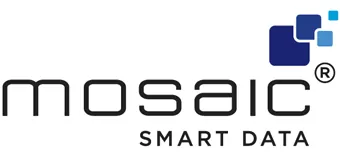Steps Ahead
The key to data-centric FICC success? Partnering with a specialist analytics vendor.
Banks — specifically business heads in banks — know and recognise that data is taking on a bigger role inside of business decisions. They understand that it is critical to driving greater productivity across sales and trading teams. This is a reality for banks across the industry.
Banks also know that the only response to this shift is to become data-centric as an institution. Equities has been a data-driven market for a while, but in FICC, it often means breaking down huge data walls to put the necessary building blocks in place. This is as much a question of upgrading the culture, as it is of upgrading tools.
In response to this shift, banks must act collectively to transform their industry, upgrade their skills and raise their productivity. This requires careful change management to truly evolve and modernise an organisation’s approach to data.
The challenge, however, is that banks often struggle to combine data science, data visualisation and FICC expertise with change management best practice to overcome their data hurdles. Pandemic-related challenges have only added to the pressure of developing and embracing modernised ways of working.
Adapt to change to survive
A recent survey from Deloitte found that 4 in 10 financial services executives felt their workforce was not ready to adapt, reskill or take on new roles following the pandemic. Restructuring work to improve agility will likely require a massive skill shift that can only be possible if banks retool traditional strategies.
In particular, Deloitte reports that candidates in niche technical areas are in very short supply. Within these technical areas, 49% of banks said AI and machine learning were the most difficult capabilities to acquire.
Finding skilled candidates in niche technical areas is a challenge for many banks
Most difficult capabilities to acquire
Source: The Deloitte Center for Financial Services Global Outlook Survey 2021
The shift to becoming a data-centric organisation requires a cultural change that must start from the top down. Cultural stasis must be addressed before the productivity and efficiency enhancing benefits of a successful analytics programme can be realised.
It is noteworthy that Deloitte found that while finance leaders want to deploy a more modern data and technology architecture, “fragmented and narrowly focused change initiatives have combined with rigid organisation structures, complex reporting lines and turf battles over data ownership and decision making authority. Together, these factors can stymie efforts to create a modern finance function.”
Innovative data analytics tools can only be used to their full potential if real change is implemented across the organisation. If you build it, they won’t neccessarily come. As Charles Darwin famously said, “it is not the strongest of the species that survives, nor the most intelligent. It is the one most adaptable to change.”
Partner with an expert, not a generalist
Against this backdrop, banks can gain a competitive advantage by partnering with a data analytics provider with laser-focused specalised expertise in both advanced analytics technology and FICC as an asset class.
It has been estimated that quant researchers spend around 80% of their time engineering data to make it usable for quantitative analysis. They need a platform with a fast time to market that empowers them to tip this balance, freeing up time for data science – not engineering.
A purpose-built platform for FICC instruments must be able to handle the full spectrum of analytics, from the day-to-day to the most advanced, delivered at an enterprise scale. Banks also want to know that the platform in question has delivered successful data analytics programmes for other banks’ FICC teams. There is, after all, comfort in knowing you are in good company.
While there are a number of generic analytics platforms on the market, these present a unique challenge for the nuanced world of financial markets. They often require in-house resources and deep technical expertise – both to tailor the platform to the bank’s specific requirements and to keep it updated and relevant on an ongoing basis. And if the person responsible for this leaves the bank, the platform can be rendered almost useless unless a suitable replacement can be found. In today’s environment of widespread labor shortages, this is not necessarily an easy feat.
Democratisation of data
Financial services specialists like Mosaic know and understand the sector our customers work in and have already thought about, built and implemented the solutions to the challenges they face.
Not only this, but we focus on outcomes rather than output. We spend time with our users to help them track and optimise key metrics of their business, clients and product lines. We help them apply data insights to their everyday decision making and client interactions to optimise resource allocation and maximise client outcomes. This is only possible because we have a deep understanding of the FICC business model and experience working with multiple banks to change behaviour. We help you be data driven using the latest best practice.
Our platform is also inherently intuitive and easy for salespeople, traders and managers to use – not just by people with tech expertise. Designed as a modern platform more akin to those we use in our consumer lives, Mosaic democratises analytics to enable the entire institution to become data-centric with minimal barriers to entry and almost zero in-house resources to maintain.
If you’re a bank looking to make your FICC operations data centric, the case is clear. A use-case specific analytics offering with rich, tailor-made functionality is the quickest, most effective and future-proof route to deriving actionable intelligence from client transaction and market data across your entire FICC business.
Gareth Evans
Chief Product Officer
Mosaic Smart Data
Iram Cook-Monie
Head of Customer Success
Mosaic Smart Data





